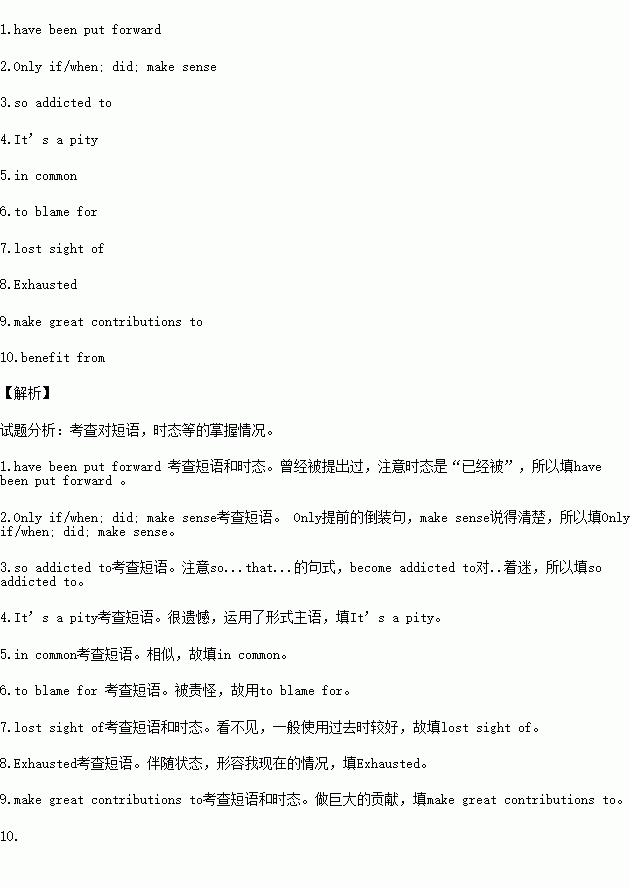题目内容
1.Many reasons ______ _______ _______ _________ to account for
Napoleon's fame.
为解释拿破仑本人的名声,迄今已有许多理由曾经被提出过。
2.________ ________you put the sun there ____________the movements of the
other planets in the sky____________ ____________.
只有当你把太阳放在中心位置上,天空中其它行星的运动才能说得清楚。
3.Some children become _______ ________ ________ the foreign snacks that
they will go eating whenever possible.
有些孩子对洋快餐迷恋到了极点,一有可能就要去吃。
4.___________ ____________ ____________ that the industrial cities built in
the nineteenth century do not attract visitors.
很遗憾,19世纪建的工业城市没有吸引游客。
5.The two countries have much____________ ____________.
这两个国家有很多相同之处。
6.Little Tom was not __________ __________ _______ the accident. After all,
he is only a child.
那次事故怪不得 Tom,毕竟他还是个孩子。
7.However, I ________ __________ __________ Wang Ping because of too
many carriages flying by.
然而,由于太多的气垫车飞过,我看不见王平了。
8.____________(exhaust), I slid into bed and fell fast asleep.
我感到累极了, 爬上床很快就睡着了。
9.We should try our utmost to _______ _________ ________ _________the
development of our motherland.
我们应该尽最大努力为祖国的发展作巨大的贡献。
10.Both Australia and New Zealand _________ __________ wool industry.
澳大利亚和新西兰都得益于羊毛业。
 名校课堂系列答案
名校课堂系列答案
